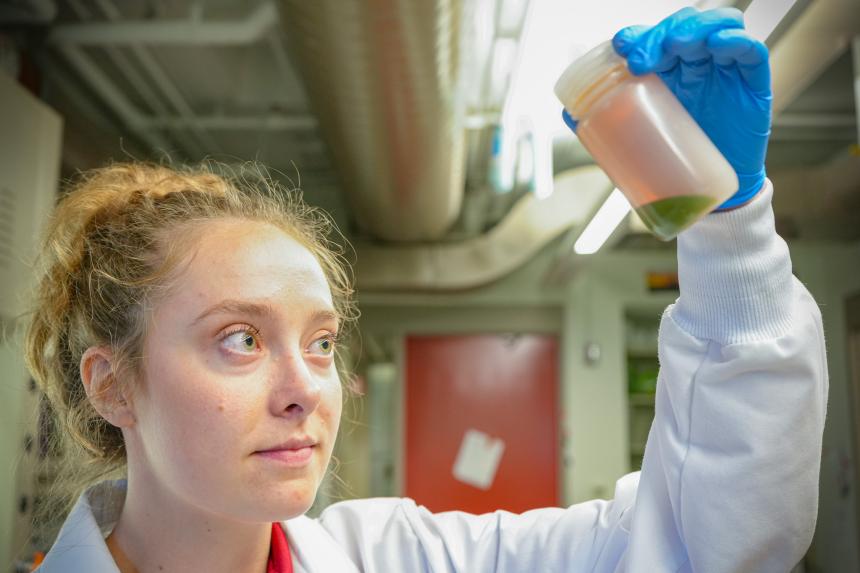In the News

September 13, 2023
It was 5:30 am and I was already sweating when I stepped out of my wooden sleeping hut and into the steamy dawn at Nepal’s Chitwan National Park. It was already 85°F but would reach 105°F before noon. I was up before the sun to complete my summer intern research project - a census of free-roaming domestic dogs in the park’s buffer zone....

Announcement
September 12, 2023
We're excited to welcome Maggie Swift as a Cornell Atkinson Postdoctoral Fellow, who will use advanced computer modeling to simulate elephant movements in southern Africa that will make it easier to evaluate scenarios for integrative, sustainable land-use management.

Blog
September 07, 2023
Cornell veterinary student Ashley Broderick conducted field surveys and a wildlife health research project on endangered hornbill species to help aid veterinarians who care for hornbills worldwide.

Podcast
September 05, 2023
Cornell's Dr. Martin Gilbert was interviewed for a Youth Geographic Association podcast about his journey into vulture conservation and ecology in Asia and Africa alongside his revolutionary research that tackled vulture population declines to help promote their recovery.

Blog
August 25, 2023
This past spring, Cornell veterinary student Amanda Bielecki, DVM '25, gave an oral presentation at the 79th Annual Northeast Association of Fish and Wildlife Agencies conference about lead exposure in bobcats and fishers.

August 23, 2023
Working with primates is something I had avoided for a while. Most of my interest has been in southern Africa, with ungulates like giraffes, antelope, and pachyderms being my main focus. Yet I felt that, following the COVID-19 pandemic, learning more about wild primate health would be vital....

August 18, 2023
The American Veterinary Epidemiology Society announced 10 new honorary diplomats during the annual meeting of the American Veterinary Medical Association this year, including Cornell's Dr. Steve Osofsky, DVM ’89.

News
August 18, 2023
While she’s now nearing the completion of a two-year Veterinary Fellowship at the National Aquarium, Sarah Balik ‘15, DVM ‘19, clearly recalls experiences she had as a Cornell veterinary student that set her on her current path.

August 09, 2023
Helen Lee, assistant director of wildlife health and health policy at the College of Veterinary Medicine, talks about the many different responsibilities of her role and the journey that led her back to Cornell where she feels her work is making a difference for wildlife and conservation.

August 01, 2023
Cheetahs have long been my favorite animal, so it is no surprise that in March of 2023, I embarked on a 49-hour journey to the country with the largest population of cheetahs. I have wanted to work with cheetahs since I was five years old....
